American Croats Start Fund Raiser for Damaged Hospitals in Zagreb
ZAGREB, April 1, 2020 - The Association of Croatian-American Professionals (ACAP) has launched a GoFundMe campaign to raise money for hospitals damaged in the 22 March earthquake in Zagreb.
The entire proceeds collected will be donated to the Petrova Women's Hospital, Rebro University Hospital and other hospitals in the capital.
Our aim is to collect USD 200,000 in the next two to three weeks because we know funds are needed now to reconstruct after the quake-damaged buildings and to provide support to hospitals battling with coronavirus. We will try and do what we can, a member of ACAP's executive board, Maria Sentić told Hina.
ACAP launched the campaign in coordination with its Zagreb branch managed by a Croatian-Australian ex-pat, attorney Don Markušić, who is also the vice president of Transparency International Croatia.
"We are in contact with Zagreb hospitals and the Health Ministry. Even though the campaign originally focused on Petrova and Rebro hospitals, we are prepared to help other hospitals," Sentić added.
Members to the Association of Croatian American Professionals represent all facets of the international professional community, including scientists, doctors, engineers, attorneys, artists, journalists, business executives, accountants, and so on.
"We are organised through 15 local branches and have more than 1,000 members. Our mission is to promote networking among members and the promotion of advancement in matters related to the Croatian community in the USA. Our objective is the prosperity of a global Croatia. We are a member-driven non-profit organization and we are all volunteers," Sentić underlined.
More diaspora news can be found in the dedicated section.
5 Million Kuna to Be Allocated for Croat Minority Programmes in 12 European Countries
ZAGREB, March 16, 2020 - Croatia has set aside five million kuna, the same as in 2019, for Croat minority programmes in 12 European countries, and applications for grants can be submitted until April 14, the Central State Office for Croats Abroad has said.
Of the five million kuna (approx. 660,000 euro), 1.25 million is intended for Croat minority organisations in Serbia, HRK 550,000 is intended for Croats in Slovenia, HRK 500,000 each for Croat minority organisations in Austria and Hungary, and HRK 400,000 each for Croats in Montenegro and Italy.
A total of HRK 350,000 each is to be allocated to Croat minority organisations in Romania and North Macedonia, HRK 300,000 to Croats in Kosovo, HRK 250,000 to the Croat minority in Slovakia, HRK 100,000 to Croats in the Czech Republic and HRK 50,000 to Croats in Bulgaria.
The minimum grant amounts to HRK 3,000 per project and the maximum grant cannot exceed the total amount intended for an individual country.
The priority areas in which Croat organisations can apply for funding are development of Croat minority organisations, culture, education and science, as well as sports, economic and similar programmes that contribute to the preservation of the Croat identity, strengthen the status of the respective Croat minority and enhance its relations with Croatia.
More diaspora news can be found in the dedicated section.
DSHV to Run in Elections in Coalition with United Democratic Serbia
ZAGREB, March 12, 2020 - The only political party of the Croat minority in Serbia will run in the country's April elections in a coalition with pro-democracy and pro-European parties, organisations and individuals, the leader of the Democratic Alliance of Croats in Vojvodina (DSHV), Tomislav Žigmanov, said on Wednesday.
Serbia will hold elections on 26 April for city councils, the parliament of Vojvodina province and the national parliament.
As a member of the Vojvodina Front movement, which includes the Social Democratic League of Vojvodina and the Vojvodina Party, the DSHV has joined the United Democratic Serbia coalition, which comprises the organisation Serbia 21, the Modern Serbia Party and the Civic Democratic Forum.
United Democratic Serbia includes "individuals, parties and organisations that publicly, unequivocally and consistently advocate the European future of Serbia," Žigmanov said, adding that the DSHV shares their goals and values.
Žigmanov said that he would be the DSHV's candidate for the national parliament, while his deputy, Mirko Ostrogonac, would run for the provincial parliament.
As part of this coalition, the DSHV will also run in local elections in Subotica, Sombor, Bač, Zrenjanin, Pančevo, Novi Sad and Beočin.
Žigmanov said that the DSHV hadn't had any contacts with the ruling Serbian Progressive Party of President Aleksandar Vučić.
"The biggest problem is that this time too we are left without guaranteed seats. The excuse by Serbian officials is that this cannot be done without changing the constitution, which has turned out to be untrue because the election law has been amended with regard to the election threshold," the DSHV leader said.
He added that "there is no political readiness in Serbia to ensure guaranteed seats" for the Croat minority, which is why the DSHV joined those who have expressed an interest in the status of the Croat minority.
The question of guaranteed seats for the Croat minority in the Serbian National Assembly and the Vojvodina Assembly, based on the model that exists for the Serb minority in Croatia, has for years been at the top of the list of unresolved issues between the two countries.
More news about the status of Croats in Serbia can be found in the Diaspora section.
Croatia Emigrants Dismiss Incentive: Money Not Enough, Change Mindset
March 10, 2020 - There isn’t any amount money that would lure us back to Croatia, according to emigrants who responded to Prime Minister Plenković's recent financial incentive proposal to encourage their return. Croatian politicians and PM Andrej Plenković are clearly not listening to what emigrants are saying. Money is not the only reason they left, and it’s not even the main reason.
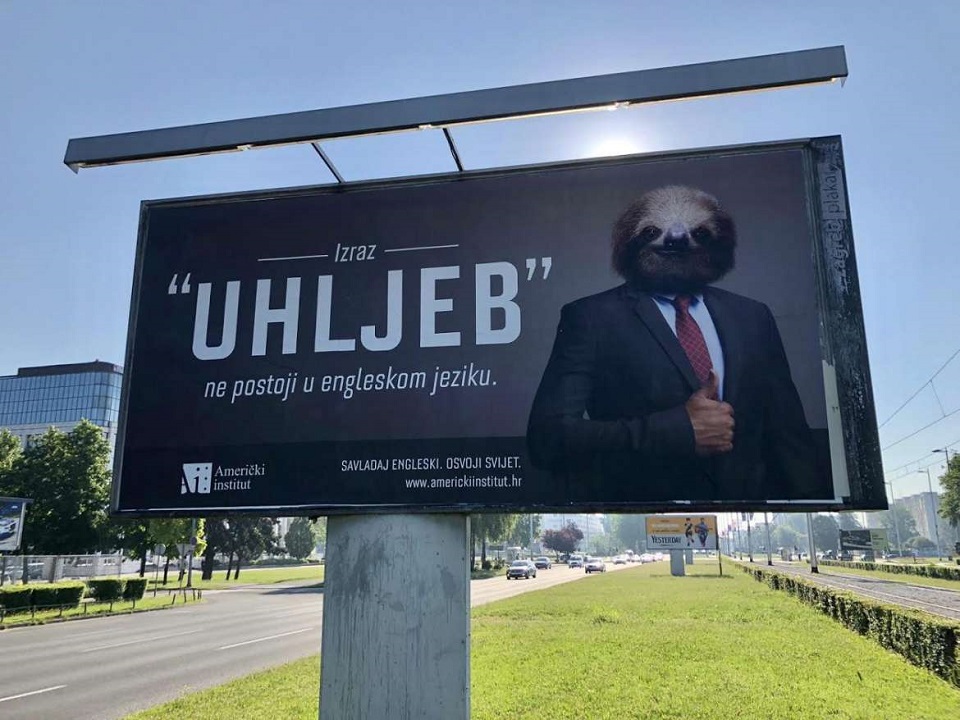
Uhljeb | Facebook
Croatia Mindset Must Change by 300 Percent
The mindset would have to change by 300 percent me to return to Croatia, explained a Zagreb man to Anamarija Burazer/24 Sata on March 10, 2020. He moved with his family to Cork, Ireland a few years ago. Upon being asked why they had moved out, he responded:
“I left because of the bunch of uhljebi (incompetent public sector employees) who are fed by the private sector so they can play solitaire. Then they release pedophiles and murderers while punishing grandmothers for cooking brandy. Politicians are working only for themselves and their own seats and citizens in Croatia feel like second-class citizens…"
In 2018, 24 Sata published the stories of several emigrants, all of whom who have sought happiness throughout the globe. However, they all agree about one thing: they have escaped injustice.
Considering that Prime Minister Andrej Plenkovic just announced financial incentive measures to encourage Croatians to return home; 24 Sata checked in with several interviewees for the two-year-old series regarding the Prime Minister’s proposed incentives.
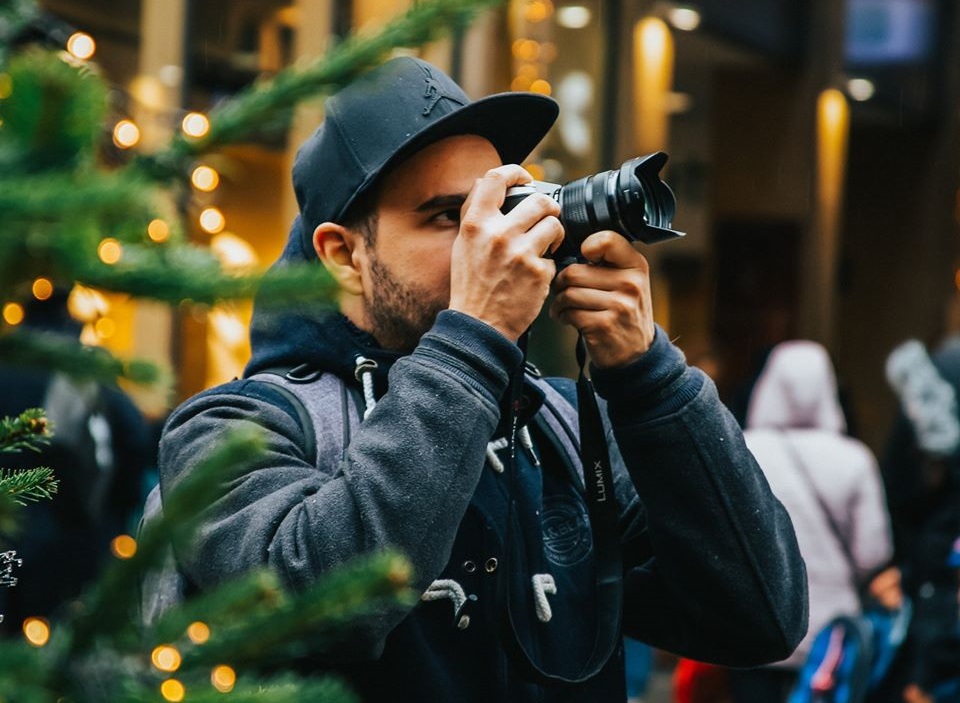
Domagoj Starcević | Facebook
Employees Have More Rights in Germany
“I have no plans to return to Croatia, and it’s unfortunate that I have more rights as an employee in Germany than I do as an employee in my own country,” Domagoj Starcević (29) reveals. He has lived in Munich for five years and is working as a chef. He still recommends that Croatians who are considering moving away do so.
“For me to return, they would have to offer me a job with two days off per week, a higher salary which is fully reported, and a guaranteed paycheck on the same day of every month,” he added.
Emigrants Find Work, Friends, Purpose Abroad
Since 2016, chemistry engineer Matea Večeric (27) has been living in faraway Japan.
“I would not go back, because once you find your place under the sun and a purpose, a life goal and create a circle of people around you that make you happy, there is nothing anyone can offer to lure me back. If I had had that from the beginning in Croatia, I might not have left,” Matea pointed out. The only thing that could bring her home is her family.
"For now, I continue on my path here in Japan,” she said and reports that she earns three times more in Japan than she did in her home country.
“There are many more opportunities to move forward and live stress-free,” Matea concluded.
Working to Live, Rather Than Survive
Zagreb's Sara Tešanović (30) moved to Germany three years ago with her boyfriend. There, she says, they work to live. In Croatia, they worked to survive.
“Whatever the Prime Minister and other politicians offer us will not provide a sufficient reason to return. It's not about money, it's about the whole situation. So, I wouldn't go back and there is nothing that these people can offer me to come back to,” Sara states decisively.
Andrea Simunović (26) also moved out of Croatia and he believes that the announcement of Prime Minister Plenkovic is just a new election trick.
"I don't think anyone will come back for that," she said.
Josip Aladrović
Government: No Details on Financial Incentive Plan
Labor and Pension Minister Josip Aladrović says that Croatia has implemented new employment measures since the beginning of the year. He did not explain how he intended to stimulate the return of Croatian emigrants.
There is a brick wall in Imotski (home of the recent gay couple effigy burning), with the names of Croatians who have left the country. According to the latest figures: 189,000 people have emigrated from Croatia in the last five years. The emigration has not stopped and there are more and more names on the wall.
Imotski Wall
Follow our Politics page to keep updated on the demographic outlook in Croatia.
Croatia PM Plenkovic Offers Emigrants Money to Return Home
March 10, 2020 – On Sunday evening Croatia Prime Minister Andrej Plenković announced a bold financial incentive to encourage emigrants to return to Croatia from abroad.
“The Ministry of Labour is preparing a new measure – a financial incentive measure for the return of our people who have temporarily gone abroad. We will financially support them to return,” Plenković said at the presentation of his team "Boldly for Croatia" at the HDZ (Croatian Democratic Union) elections in the crowded hall of the Radisson Blu hotel in Split, which was greeted by applause.
HDZ Speeches Frequently Interrupted by Wild Applause
Raucous applause interrupted his speech several times. That was followed by speeches from Toma Medved, candidate for HDZ deputy president and the four candidates for the party's vice-presidents, Zdravka Bušić, Ivan Anušić, Branko Bačić and Oleg Butković. In their speeches, they rejected claims that HDZ had moved to the left and highlighted the success of the government under Plenković's leadership as reported by 24 Sata on March 8, 2020.
“We are six friends, but we are not the same, none of us owe anything to anyone. Nor do we share the same opinions on every topic. However, what connects us is the same vision, the same direction for HDZ and a common program that contains everything that matters to HDZ,” emphasized Plenković.
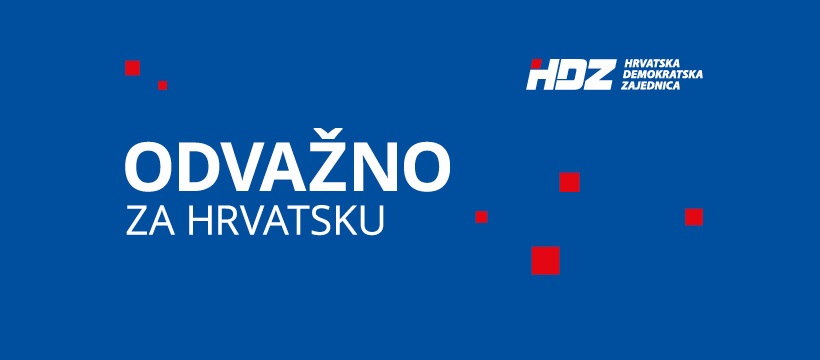
"Boldly for Croatia" | HDZ
Internal Elections for Sharing Ideas, Not Criticism
The HDZ president urged party members to support his team "Boldly for Croatia" in the elections, stressing the importance of unity in a party which has room for everyone, and for colleagues who are on other teams.
“These internal party elections should be an opportunity to compete about ideas surrounding Croatia's program and vision. They should not be used as an opportunity to criticize one another as if I were listening to and taking arrows from opposition parties. This is not the point of internal party elections. The purpose of internal elections is to maintain appropriate communication within the (party) framework and after which we will continue to cooperate in a normal manner,” said Plenković.
We Are Stronger as United Party
He stressed that the HDZ unity is important in the upcoming parliamentary elections because, he recalled, whenever HDZ is unified – they have success. And when they are not united – the party is in trouble.
“That's why it's important for us to stick together. There is room for everyone, and room for colleagues on other teams who have their own ideas and ambitions - I respect that,” added Plenković.
He noted that the difference is that his team is aware of the government's achievements over the past four years.
Croatia Achieved Sovereign Goals Under Tuđman
He dismissed the remarks of those (right wing) parties who condemn the HDZ's lack of sovereignty and stressed that Croatia had already achieved its sovereign goals under the first Croatian president, Franjo Tuđman. He added that he and his team are following Tuđman's policies.
“It is easy to push irresponsibly for mild populism, to raise passion, and promote falsehoods,” Plenković concluded, dismissing criticism of HDZ’s approach regarding sovereignty.
Follow our Politics page for details on the Prime Minister’s recent financial offer to Croatian emigrants, and their response.
Is a Foreign Resident Opinion Less Valid than a Diaspora Opinion?
March 5, 2020 - Opinions about Croatia vary considerably, with the viewpoints of those living here often at odds with many in the Croatian diaspora. But is the opinion of a foreign resident of a country less valid that someone from the diaspora who has never lived here?
Which questions were you asked most last year?
I am guessing that the two most popular questions to all of you were the same - how are you and where are you?
For me there was a third question, which was almost as frequent - what do you think about Brexit?
I was born in the UK, lived there for the first 19 years of my life, but apart from university and 5 years running my own wine business with my father, I have lived abroad for the rest of that time.
How did Brexit affect my life (apart from having to listen to British friends debate it endlessly when we met up)? It took 18 minutes of my life when I changed my driving licence at Varazdin Police Station. That's it.
Having not lived in the UK now for 20 years, I have little real understanding of the daily realities there today. I go back every 2-3 years to see family, and every time I go, it feels a little bit less familiar. I am ok with that, I made my life decision to travel the world and experience new cultures. And now, having visited 96 countries and lived in 10, I have found the perfect spot in rural Varazdin County with my lovely Dalmatian wife and two adorable kids.
I still follow the news from the UK, the politics, the business, sadly my commitment to Aston Villa. But do I understand the issues of daily life in Britain today? Less and less.
I meet or am contacted by LOTS of foreigners who live in the country of my birth. Many Croatians of course, but also from other parts of Europe and the world. We have moved in opposite directions, and it is always interesting to share experiences. And when I talk to these people, I hear a lot of criticism about the land of my birth - the racism, the lack of culture, the crime, the failing NHS, the aggression towards immigrants. I find these experiences real and genuine, experiences that have been molded by real-life experience. To me, hearing these experiences educates me about the realities of modern Britain, invites me to consider my native country from a different perspective, and provides me with a more rounded view of Britain today and how it has changed from the Britain I left behind 20 years ago.
It has changed a lot. And not for the better, if the general tone is to be believed. And if I asked myself which opinion of the UK was more valid - those of a foreign resident who has been living the daily grind for 20 years, or someone who was born and raised in Britain but chose to live elsewhere and have limited contact with the mother ship, clearly the views - even the critical ones - of the foreign resident are far more relevant. Rather than standing up patriotically defending my country from a foreign resident who had the audacity to live in my country and then feel entitled to attack it, I am a realist and know that things aren't perfect, and that criticism - especially constructive criticism - is healthy in society.
One thing I would definitely not say is - if Britain is so terrible, why don't you f*ck off back to Warsaw, Bucharest, Sofia, Zagreb (fill in the appropriate city)? As far I see things, if someone makes a decision to live in a country, pay taxes and accept and embrace the limitations of their host country, they absolutely have the right to criticise what they see as wrong.
And so we come to Croatia, where I change my diaspora hat for that of the foreign resident.
As we have long ago established in Is a Foreigner Allowed to Have an Opinion in Croatia? foreign opinions are very welcome in Croatia - as long as they are positive. As soon as something critical appears, the invitations to f*ck off to whence you came come pouring in.
My recent editorial Traditional Values or Perpetuating Division? Shaping the Young Croatian Mindset was widely read and widely commented on. As with most articles of this type, there were very polarising views - some strongly agreed, some violently disagreed. I am fine with that, as all debate is healthy. One of the strongest reactions was from a Croatian Facebook page in Sydney, called Cro2000 Media, which labelled TCN as a subversive and dangerous portal, with one of the commentators confirming that I and a 'female buddy' he had met in Dubrovnik were both working for MI6. I must say that I like this description - it does make me sound quite the all-round action hero. I guess this is perhaps why people are so disappointed when they meet me in person... You can read the full post from Cro2000 Media here.
The relationship between Croatia and its diaspora in Australia is one of the weirdest I have ever come across anywhere. They are without doubt among the proudest, most patriotic and generous (in terms of supporting the Homeland) Croats on the planet, many of them descended from victims of persecution by Tito. Surprisingly, for such patriotism, a large number don't speak Croatian at all apart from a couple of phrases, most have never lived in Croatia, thereby experiencing the realities of life here, and a large number have their real Croatian experience shaped by a 2-week summer holiday on the beaches of the Adriatic.
But in terms of opinions of this diaspora and a foreign resident like me? It seems that only one opinion is valid. And it is not mine.
Every time discussions like this start online, there is the typical reaction from locals living in Croatia to the diaspora. The main argument is that if you want to have an opinion about the country you love, you should try paying taxes and living here. It is a curious thing that the diaspora have the vote (3 MPs in total) but are not required to pay taxes. If my opinion is worth anything (I know it is not), I am fine with the diaspora having their opinions, voting and not paying taxes. The generosity of the diaspora during the war saved Croatia, and the 2 billion euro sent to the Homeland each year is actually bigger than Croatia's annual foreign investment. And in terms of the vote, an incredibly small number do vote - just 40,000 in the recent presidential election (24,000 of which were in Hercegovina). A lot of local people tend to brush over this important aspect of a very complex relationship.
It would just be better for all concerned if you are going to voice an opinion, to do it on a subject you actually know something about. Come on over and spend some time in Croatia, live it a little and learn that the perceptions you grew up with are actually very different on the ground.
Everyone is different, but I personally would be embarrassed to start lecturing a foreign resident of the UK about all things British having been out of the country for 20 years. Debate is healthy, but a prerequiste is understanding the issues being debated.
At least in the irrelevant opinion of this foreign resident.
Milanović Wants More Funds for Burgenland Croats
ZAGREB, March 3, 2020 - President Zoran Milanović said on Monday after a meeting with Burgenland Croats that Croatia should allocate more funds to that minority community.
"From this position it is easier to say that we should give them more money, because I was prime minister and could have done so myself. However, I was surprised by how little we as a state give to this community," Milanović said in Eisenstadt, the capital of Burgenland, where he met with the Burgenland Croats' representatives.
"I think we should give more, the funds Croatia allocates are very limited, and I am certain that even some people in power are not aware of that," Milanović added.
Since the 16th Century, ethnic Croatians have inhabited Burgenland, a region covering parts of contemporary Austria, Hungary, and Slovakia. It is estimated that 50,000 ethnic Croatians live in the area today.
The representatives of the community told Milanović about the problems they are facing, and about their goals, such as opening a bilingual school, like the ones which already exist in Burgenland and in Vienna.
Milanović's visit to Eisenstadt, a town which was named in 12th Century for its history in mining and trading in iron, ended his one-day visit to Austria.
Earlier in the day, Milanović met with President Alexander Van der Bellen and visited the Croatian Centre in Vienna.
More news about Croats in Austria can be found in the Diaspora section.
Traditional Croatian Ball Opens in Vienna
ZAGREB, February 23, 2020 - The traditional 29th Croatian Ball, organised by the Austrian Croatian Union for Culture and Sports, opened at Vienna's Arcotel Wimberger Hotel on Saturday evening.
The event brought together about 350 Croats from Vienna and throughout Austria, their guests from Croatia, Austrian friends and sponsors.
The head of the Austrian Croatian Union for Culture and Sports, Mate Ružić, said in his opening remarks that the ball had become a place for social interaction and entertainment for Croats and their guests in the Austrian capital.
Those present were also addressed by Croatiana Orešković of the Central State Office for Croats Abroad, who said that the ball confirmed the unity of Croats in fostering their culture and customs.
This year's ball was held under the auspices of the Central State Office for Croats Abroad, the Croatian Embassy in Austria and the Mayor of Vienna, Michael Ludwig.
Established in Vienna in 1990, the Austrian Croatian Union for Culture and Sports coordinates a dozen Croatian associations with more than 3,000 members and is one of the largest Croatian organisations in Austria.
More diaspora news can be found in the dedicated section.
Creative Young Croatian Returnees: Uniting Artists & Business to 'Fill the Void' with Culture
February 21, 2020 - Winter life on the Dalmatian coast is a fraction of its summer energy. But not everyone is hibernating, and indeed some are finding very creative ways to fill the void.
Last night, I entered a souvenir shop to find a performing artist was crouching inside a Coca Cola fridge. When not in a fridge in a closed shop on the usually empty-all-winter Zadarska Ulica, Mia Kevo is dancing. Of late, Mia runs choreographed and improvised dance programs for people with disabilities around Croatia. This is one of many local and international artists - including photographers, filmmakers, urbanism researchers, who are part of the program for Culture Hub Croatia’s (CHC) PRAZNINE 2020 - an international artist program, loosely translating to VOIDS 2020. The program makes use of spaces which sit empty in winter due to unsustainable tourism practices - and is sign youth who are gaining expertise outside, are taking steps to change things in their hometowns - and in general, being supported by local businesses who see the need to re-energise coastal cities.
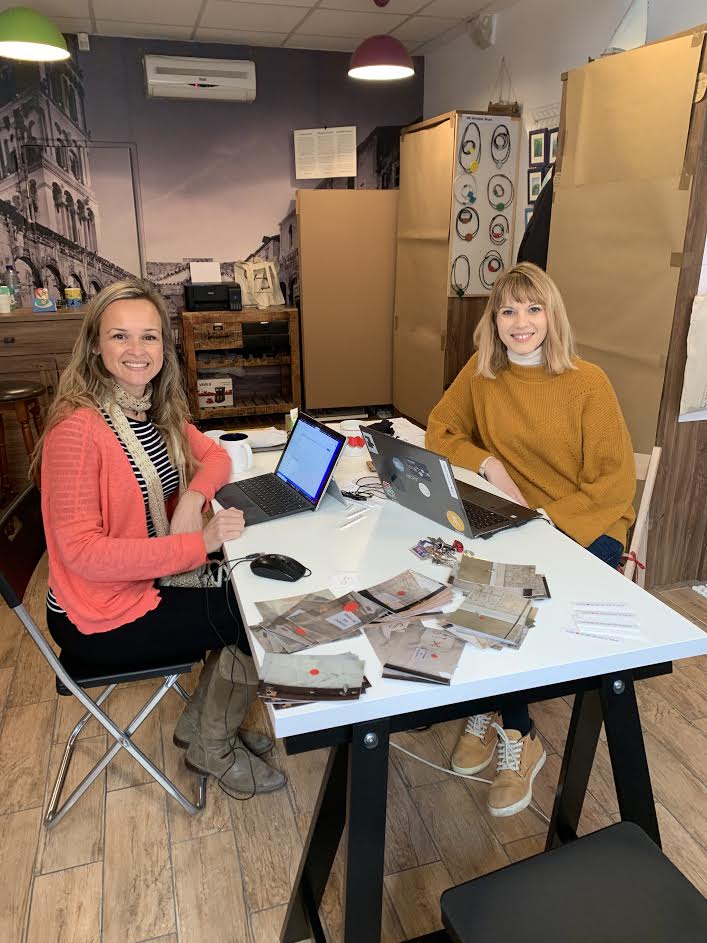
I’m writing this sitting in a pop up coworking space on Bosanska 4 in Split with one of the CHC founders, Marina Batinic, originally from Split and based between her hometown and Brussels. In the summer, this pop up cowork space functions as a souvenir shop - across the Game of Thrones Museum. The owner, Sanja, opened her doors and supports the space for artists initiative. Like so many, hers is a business reliant upon crowds - who disappear by around 1 November. I’m surrounded by handmade items from Dalmatia - from jewelry, paintings, sculptures and behind a brown box a sign for ‘magical bottles’. I’ll have to come back in the Summer to peruse the items for sale. These are the kind of sustainably-minded thinking businesses to support. (Looking out the window, I note even the GoT museum is boarded up). Marina is part of the culture hub trio, also included Jasmina Šarić and Kristina Tešija - all who are making a commitment to bringing international, cultural initiatives to their hometown, operating based on citizen support.
Sitting here with Marina, we discuss the changes we’d like to see and the challenges each of us has encountered - from local mindset, to tiring after swimming against a wave bigger than just a few people. Personally, being a champion for Remote Working and digital nomads (for which this country is an ideal destination) conversations like this are common - if only with a small handful of those ‘taking things into their own hands’. Sometimes, it’s like an inner tennis match going on, when you think about the number of people leaving - and yet, the number interested in coming. So why aren’t these people coming back?
Infrastructure.
A lack of faith in a system they left.
Easier (perhaps) living on greener pastures. But is it, really?
In the last month alone, I have a renewed optimism, from reading and speaking to members of the upcoming Day One tourism conference, and people - with established careers outside of Croatia, choosing Croatia or coming back - coming back due to the need for role models and mentors. In the words of Mate, one such accomplished gentleman among them, “if I don’t who will?” Thank you, Mate. Are there more like you?
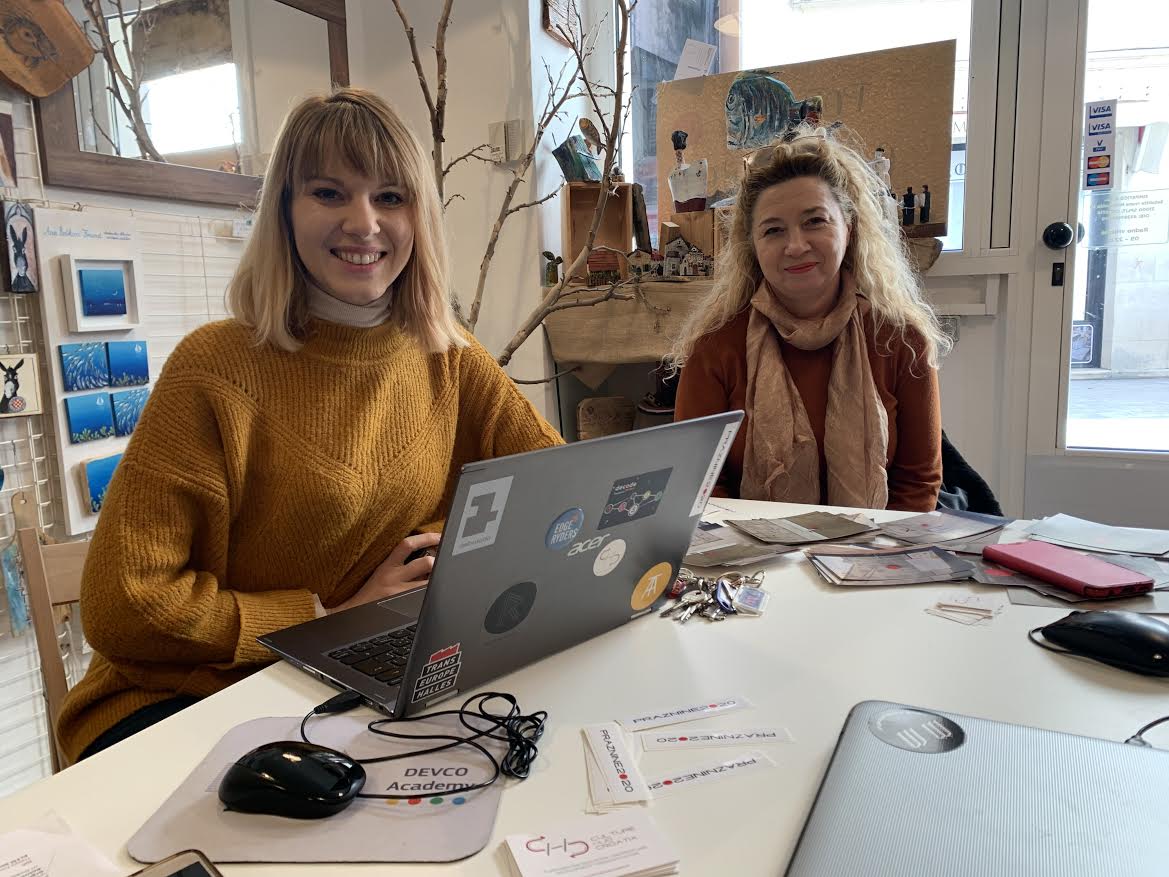
To return to the program, which does more than show this is an ideal, if under-utilised place for activity in the off-season, Marina shared more about the motivation and thinking behind PRAZNINE 2020.
“We invited artists from the region because the aim was to bring their artistic production more closer to the people. We’re not used to seeing contemporary art production at all and we don’t really collaborate in the region. We wanted to use arts to facilitate this dialogue and understanding. We have artists from North Macedonia, Albania, Kosovo and Bosnia. We want to meet these people and understand their work.
This is why we chose to have ‘open studios’ - even people who don’t understand contemporary art - to make people interact.
These Balkan countries need more dialogue. We wanted to use art as a means [for this].”
CHC are part of a wider international network, and now bringing their international connections to their hometown.
“We didn't want to limit the program only to the arts and open studios but we opened our calendar to the local community and other civil society organisations who were able to make their proposals for events and organize them in one of these spaces. In this way we allow everyone to shape their own city and gain back the ownership over it.”
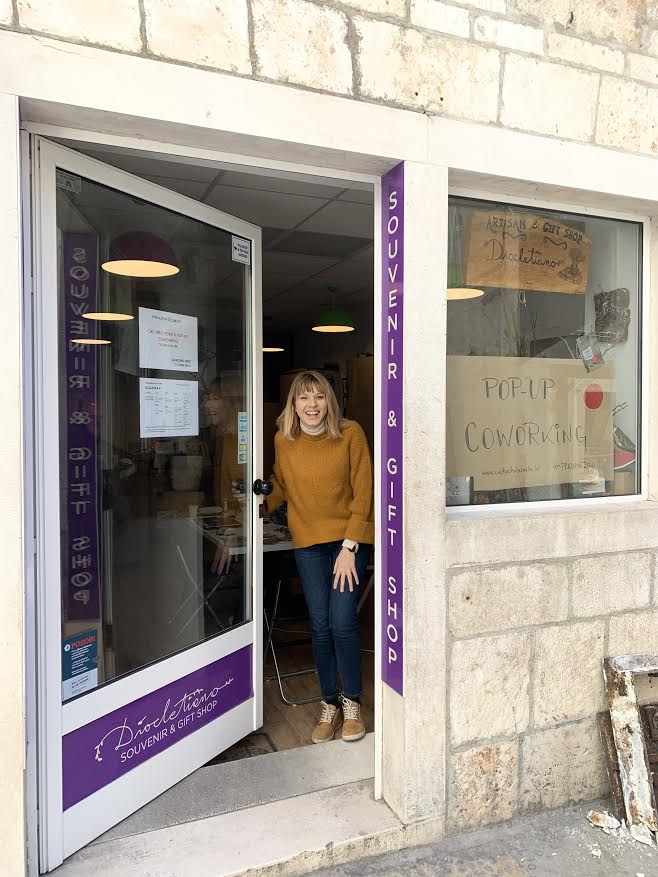
Sitting here, our joint guesstimate 60 to 70 per cent of the Split palace and the surrounding area is empty over winter. In setting up for their event, 35 promotional red dot stickers were printed - to be placed on empty “boarded up” businesses. They were used up in a matter of minutes.
For the finalé event, representatives from the European Creative Hubs Network (EHCN), Luka Piskoric from Poligon Ljubljana and Istanbul’s Atölye’s Atılım Şahin are coming. It is a great opportunity to see what is happening with Creative Hubs in the region on a wider scale.
--
WORTH RETURNING? IF ONLY THE “VOID” SEASON
In an era which is increasingly enabling and empowering remote work and digital nomadism - why isn’t the mini-Croatia in Dublin and the like thinking about basing here? If only during the “off-season”. It sure is sunnier. And with making use of empty spaces - all CHC had to do was knock on the door and ask (how novel). CHC prove it is possible.
Initiatives like these - a pilot project in the eyes of CHC, but hopefully an enduring one - are bringing life back. It no longer needs to be a smoky cafe and people futilely talking about politics when (if) you return. It’s connection with a cultured hit.
It seems there could be. As we sat at Marulus Bar last night - and had this unique stone-walled bar (with smoke free zone) entirely to ourselves - Marina shared stories of the large number of people reaching out to CHC from outside of Split (its official base) and applauding them for their efforts. I had the pleasure of doing it in person. In one of countless cities ripe for cultural and digital nomad disruption.
PRAZNINE 2020 is filling the void you may be experiencing this Winter, and runs until 7th March 2020. To see the full calendar and full event descriptions, and bios of the artists (in English and Croatian, visit the page on Culture Hub Croatia’s website or the Facebook event page.
Want to know more about being a digital nomad in Croatia? Follow the dedicated TCN section.
Equipment Stolen from Office of Local Croat Association in Serbia
ZAGREB, February 17, 2020 - Technical equipment including a laptop, a printer and a Wi-Fi router were stolen from the offices of the local cultural society of ethnic Croats in the village of Ljuba in the Serbian province of Vojvodina, local media outlets reported on Monday.
The Hrvatska Riječ weekly newspaper reported that the theft had occurred under still unclear circumstances.
A representative of the association, Željka Donković, told the newspaper that the local authorities in the municipality of Sid and the local community had provided the Ljuba NGO with space to work.
"We have invested a lot of funds and efforts to make the offices suitable for our work," Donković said, expressing hope that the perpetrators who had taken away the technical equipment would be identified and arrested by the police.
The head of the Ljuba local community, Mirko Belan, was quoted as saying that coexistence in the village was good. He does not think that there are any reasons to believe that this case of theft could be ascribed to ethnic intolerance.
On the other hand, the Democratic Alliance of the Vojvodina Croats (DSHV) says that "it is extremely concerning that this act happened in Srijem, where local Croats were exposed to large-scale persecutions in the 1990s." During that period, 30,000-40,000 ethnic Croats were forced to leave or decided on their own to depart from the area, the DSHV says.
The Ljuba association was set up in 2014 with the aim of preserving and promoting the customs and heritage of local Croats in that village in the region of Mount Fruška Gora.
More news about Croats in Serbia can be found in the Politics section.



